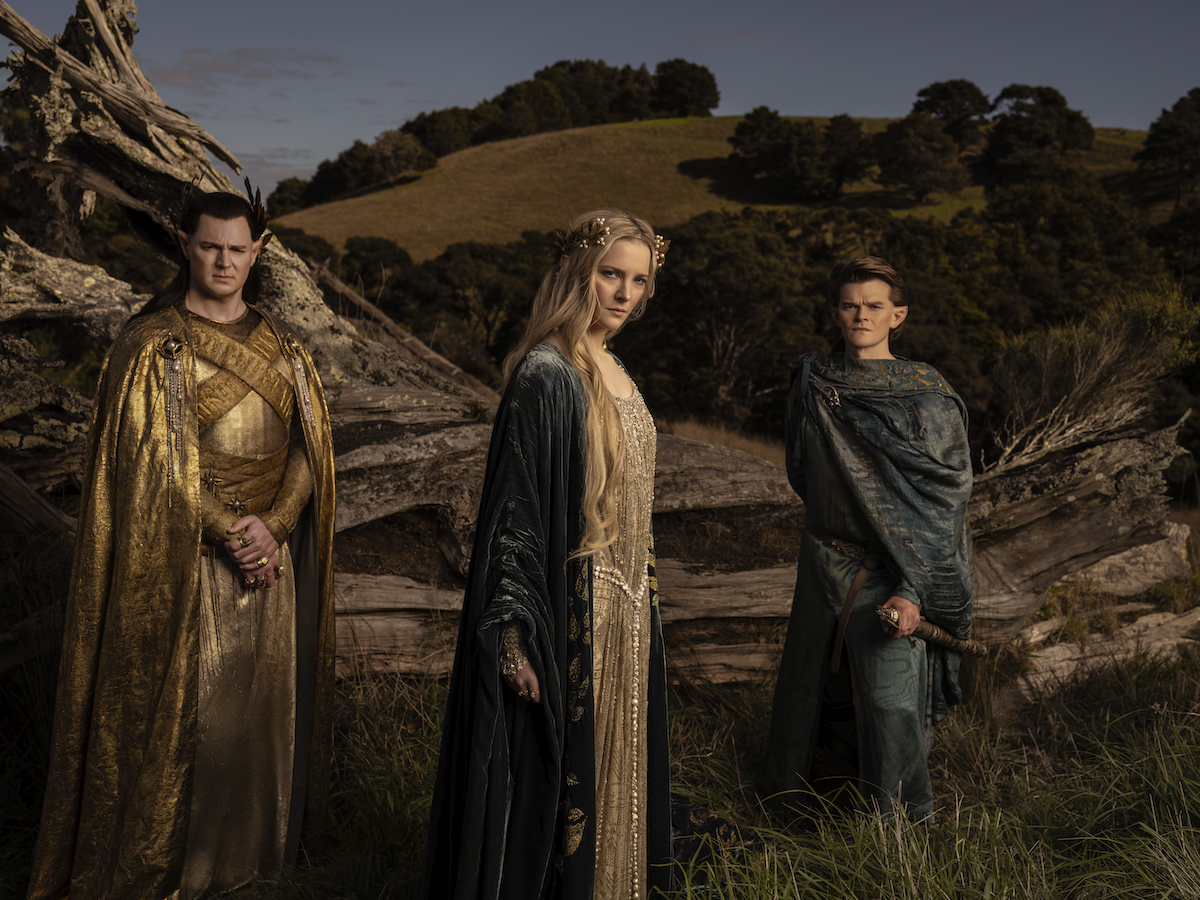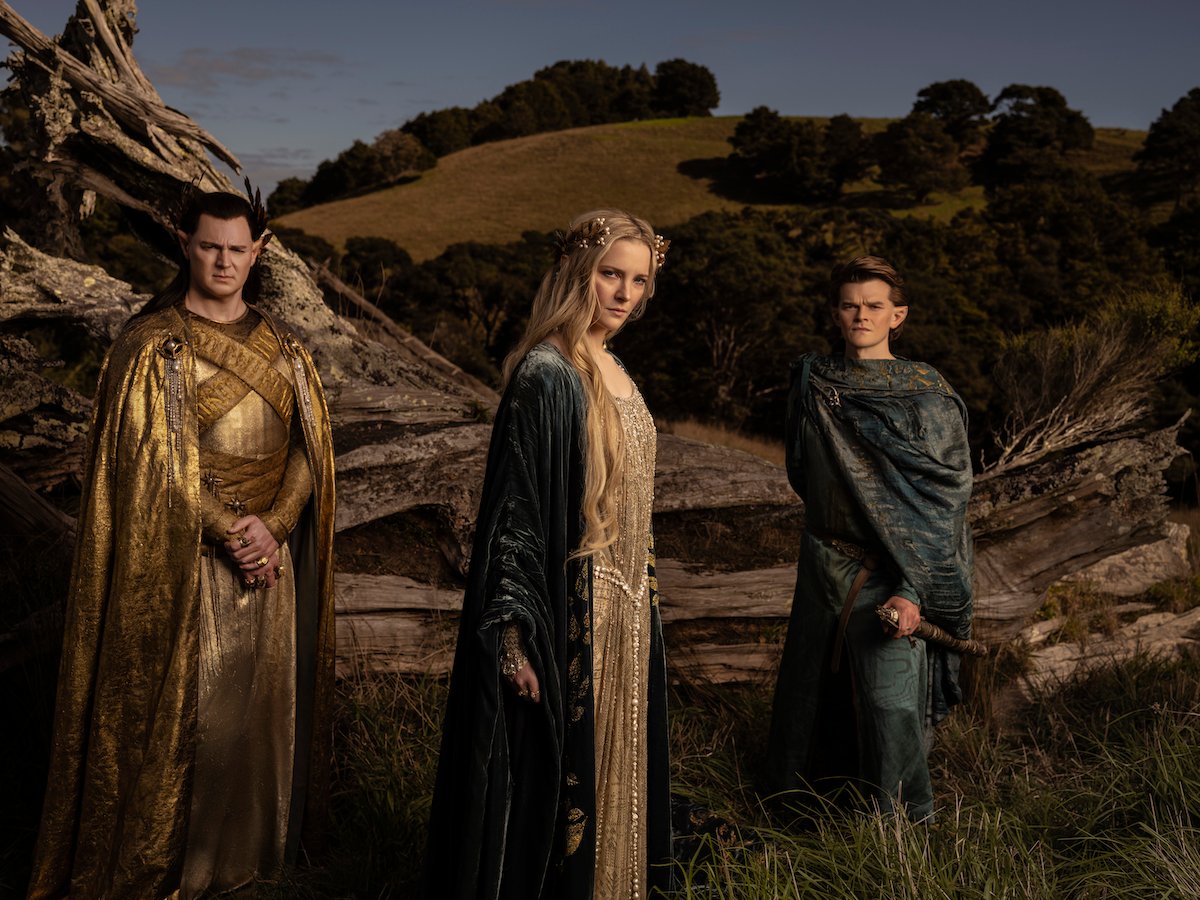
‘Lord of the Rings: The Rings of Power’ Cast Speaks Same Elf, Orc Languages as Movies
Long before The Lord of the Rings was a film or television series, author J.R.R. Tolkien invented two languages for his books. Orcs speak their own language, and so do elves. The elf language is called Quenya, and it has made its way into the films and Prime Video series The Lord of the Rings: The Rings of Power.

Showbiz Cheat Sheet attended the Rings of Power Television Critics Association panel on Aug. 12 and spoke with creators J.D. Payne and Patrick McKay on Aug. 13. They described using Quenya in the show. New episodes of The Lord of the Rings: The Rings of Power premiere Thursdays at midnight ET on Prime Video.
‘The Lord of the Rings: The Rings of Power’ keeps elf and orc languages alive
There are plenty of orcs throughout Lord of the Rings: The Rings of Power. The third episode showed Elendil (Lloyd Owen) speak Quenya to Galadrial (Morfydd Clark).
“Yes, there is Quenya is the high elfin and Sindarin is the other,” Payne told Showbiz Cheat Sheet. “But there are a couple dialects of elvish. Yes, we are using them in the show.”
Language is integral to ‘The Lord of the Rings: The Rings of Power’
McKay added that language is integral to any Tolkien project. He said The Lord of the Rings: The Rings of Power not only includes Tolkien’s invented language, but pays homage to the English prose he wrote, too.
“Tolkien created this world because he was a linguist and he was fascinated with words and the language is very important,” McKay said. “Not just the invented languages of these cultures that he imagined with the finest detail, but also the language with which people speak. That’s something we really wanted to preserve and try to honor to the best of our possible abilities in the show.”
Tolkien experts helped keep the elf and orc languages right
Executive producer Lindsey Weber spoke on the TCA panel about the Tolkien language. The Lord of the Rings: The Rings of Power employed Tolkien experts to keep the fictional languages consistent with previous movies and books.
It is such a privilege not only to be a part of this work that has been here for so long before us and will be so long after us all, but also to be part of this global community of people who love Tolkien. And we, in addition to these brilliant people who we can’t wait for you to see more of, had the privilege of working with some of these incredible scholars who’ve devoted their life to Tolkien’s work. The legendary John Howe, Carl Hostetter — who helped with all of our language work — Daniel Reeve, Daniel Falconer, Simon Tolkien himself, Tom Shippey. So, really, though we are a few, we are representing an enormous fellowship all over the planet. And it’s just been a real privilege to be a part of it.
Lindsey Weber, Television Critics Association panel, 8/12/22
During the panel, McKay also emphasized that The Rings of Power has to establish itself as a brand new story. However, Tolkien’s languages are inextricable from that story.
“The show had to earn its place on the stage and stand on its own two feet and hopefully rise or fall on its own merits,” McKay said. “In that respect, the stories are different stories than you’ve seen before on screen from Tolkien. His themes and his ideas that he wrote about, we’ve talked about a lot of them, are throughout the show, his language is throughout the show, his world, his characters. But audiences are going to be going on a new experience than they’ve had before and there’ll be twists and turns and surprises along the way.”


